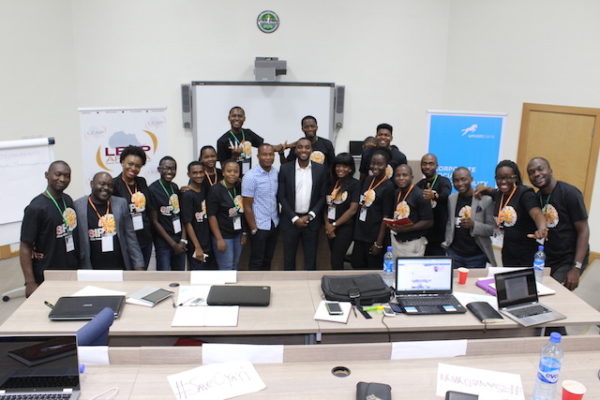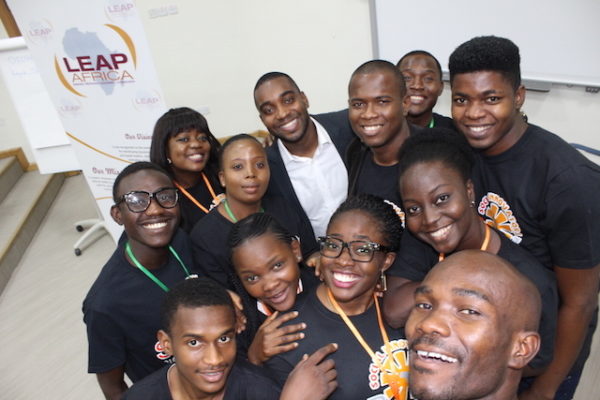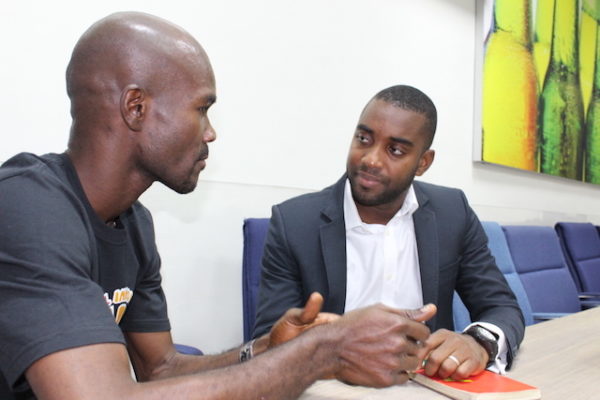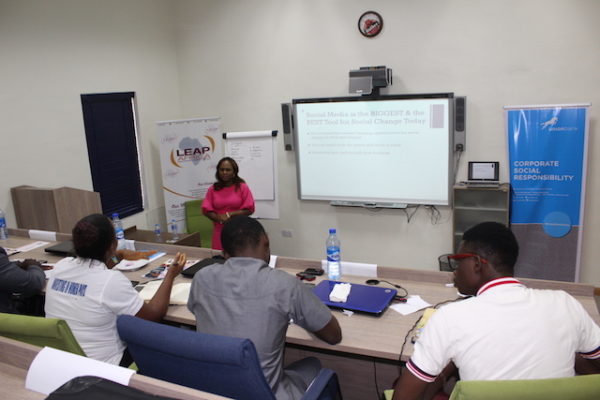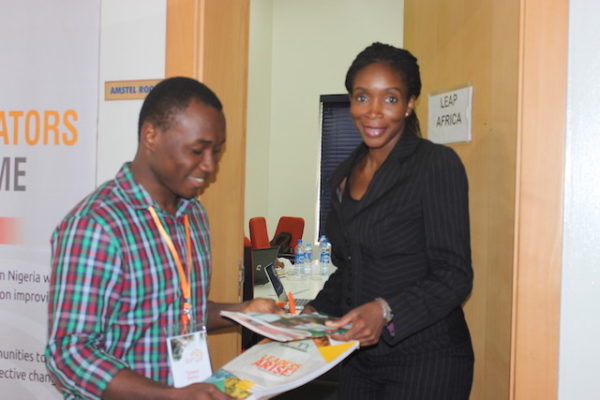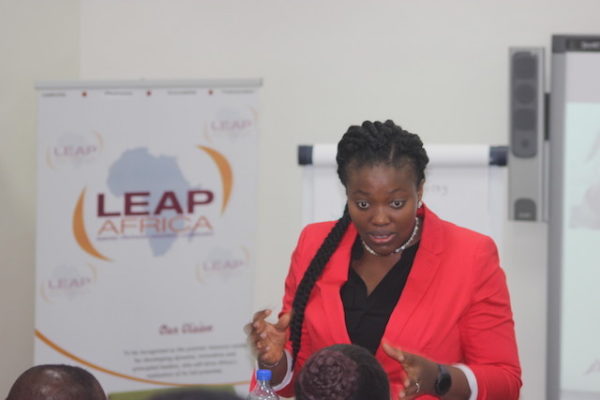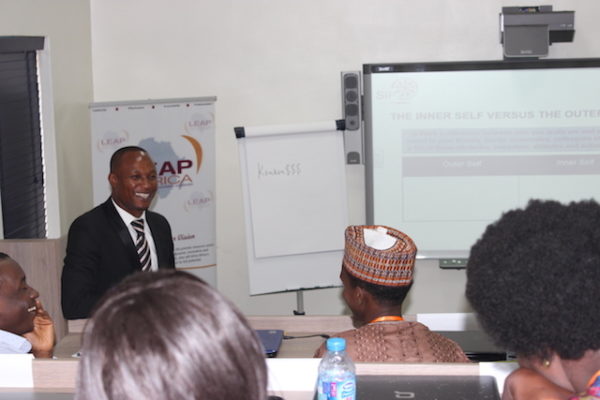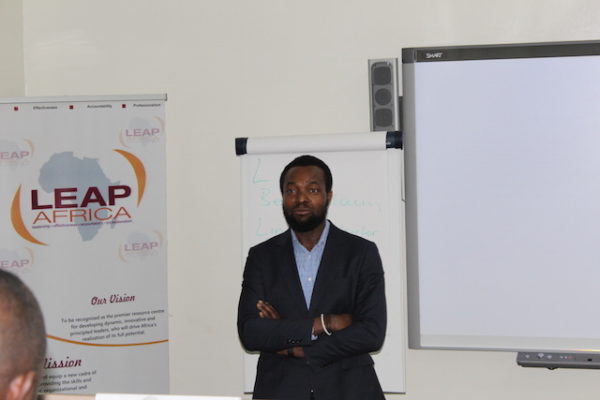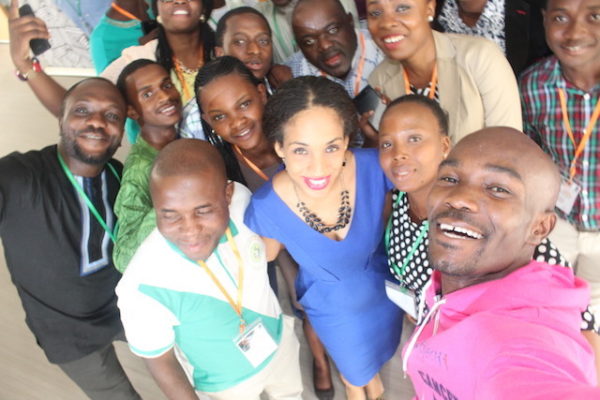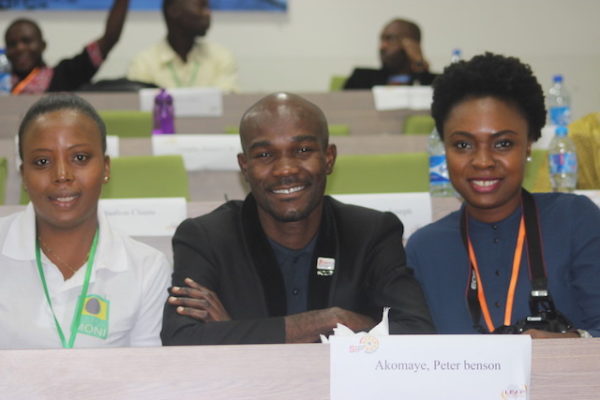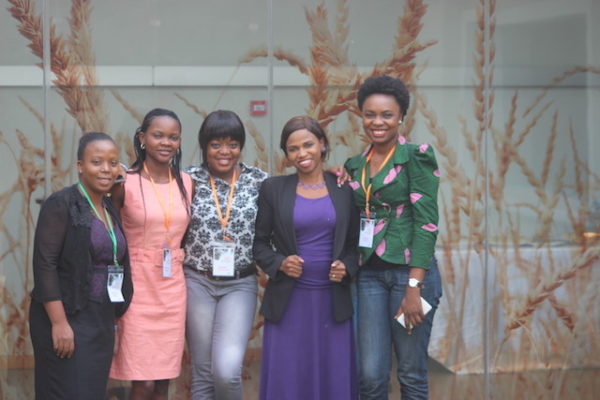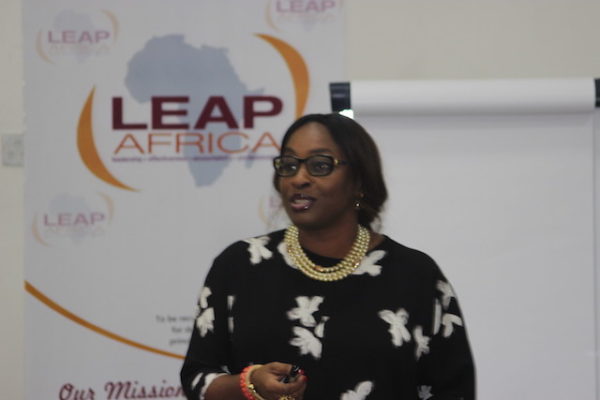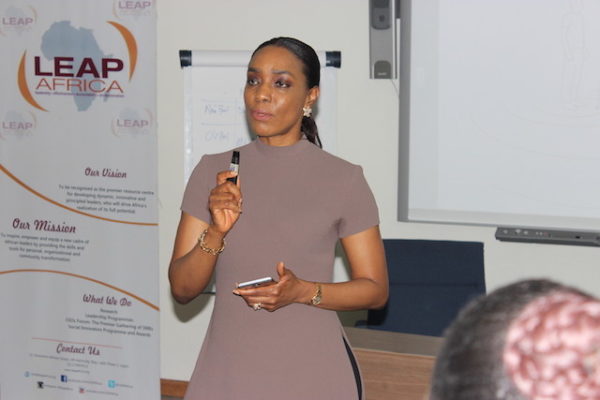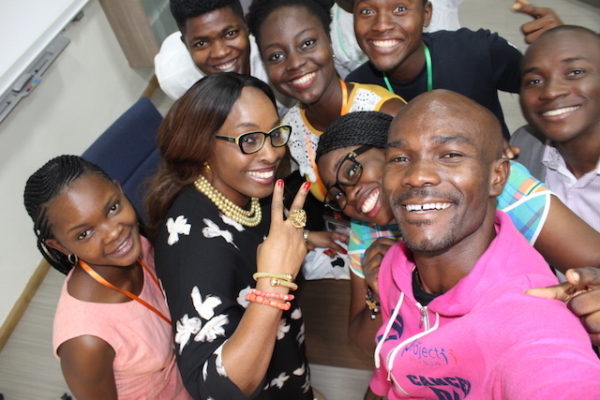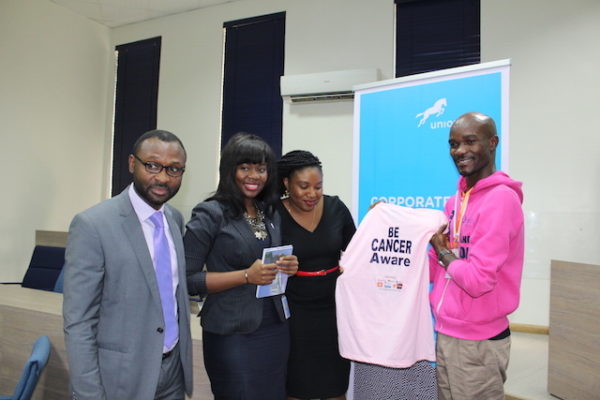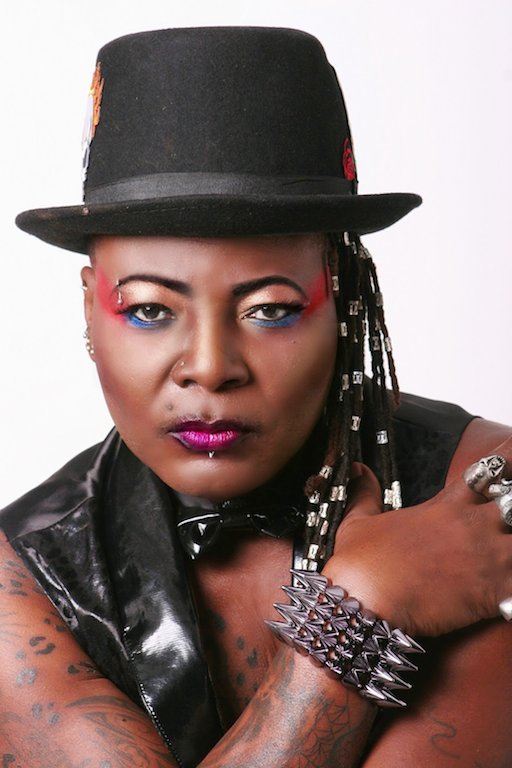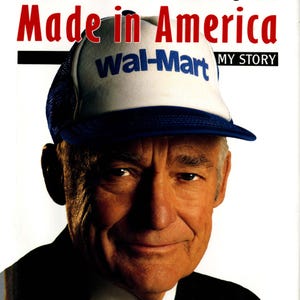Ben Murray-Bruce - Feb 21

Many Nigerians are complaining about the constant fall in the value of
the naira and they blame the government. But is the government really to
blame? In truth, our insatiable appetite for all things foreign is to
blame. No nation can become great if it is clothed, serviced and fed by
other nations. It just will not happen. In lay man’s terms, a nation’s
currency is like a promise by the issuing authority, in this case the
Nigerian Government, to pay holders of the currency. In other words,
currency is an assurance by a government on goods and services.
What happens when we spend our naira buying imported items and not
made-in-Nigeria products is that our government is assuring the nation’s
from which those imports come from and not our own nation. So imagine
this scenario, imagine that Nigeria and other nations are football
teams. How can we win if our supporters club keeps patronising other
teams and not our own football team?
This is the self-inflicted
injury we have inflicted on our dear naira and instead of blaming
ourselves we are blaming government. I always fly Arik business class
whenever I am travelling abroad except Arik does not fly on that route.
Not only is an Arik ticket a fraction of the cost of a British Airways
ticket, but the money I pay to Arik circulates in Nigeria and helps firm
up the naira’s value. As I speak to you today, a British Airways
business class to London is N2,103,666 while Arik business class is
N551,545, yet our elite still fly BA.
But though Arik offers an
affordable alternative to British Airways and other foreign airlines,
our big men prefer to pay double what Arik charges to BA and other
foreign airlines for the same services and yet they complain about the
value of the naira. Arik’s planes are brand new and are more comfortable
than British Airways. I know that for a fact because I have flown both.
If we do not fly Arik, who would?
I have Nasco cornflakes and I
have eaten Kellogs cornflakes. In terms of nutrition and taste they are
almost indistinguishable. Yet our elite who will rather eat Kellogs than
Nasco cornflakes, wonder why the naira is falling! Even something like
Quaker Oats can be merchandise and promote their leagues. Yet, back at
home, we would not be caught dead watching our own local league.
If we will not spend money on made-in-Nigeria goods and services, how can we expect our naira to hold its value and appreciate?
Obviously we cannot cut ourselves off from the world. No nation is an
island, but at least we can fly Nigerian airlines, eat locally produced
food and patronise our football league. If we do this, not only will our
economy grow and produce jobs for Nigerians, it will also make our
goods and services improve in value such that they will be attractive
enough to be imported.
We may approach the United Kingdom for loans
to fund the 2016 budget. The funniest thing is that the British Prime
Minister, David Cameron, is famous for using the London Underground
public transport facilities. What is wrong if our ministers use public
transportation once in a while? What is wrong if they enter a taxi to
work? And even if we must buy cars for government officials why must we
buy foreign cars?
Silverbird bought Innoson vehicles as official
cars for our staff. The buses are roomy, very comfortable and extremely
durable. I have never lived to regret these purchases for even a day.
But most of all, I know that my purchase helps to keep jobs in Nigeria
and improve the value of the naira. I urge you to do the same. We have
no other country but Nigeria and it is you and I that will make it what
it is.
Can you imagine how far Innoson would go if we spent the
N30 billion we use in buying cars for our elected and appointed
officials at the federal, state and local government levels on Innoson
vehicles? We must make hard choices if we want Nigeria to be better and
spending borrowed money on convoys for elected officials is not a
priority. It is a luxury that Nigeria cannot afford at this time in her
history. If we buy Naija We Will Grow the Naira.
Finally, I must say that I am pleasantly surprised at the level of support the hashtag,
#BuyNaijaToGrowTheNaira
has gotten since I originated it onsubstituted with corn meal known
locally as pap. Obasanjo Farms of Nigeria and other large scale poultry
farms have the capacity to provide chicken for the entire nation. Since
that is the case, why are we even buying imported chicken?
Imported chicken may be cheaper in financial terms but it is more
expensive in health terms. These birds are heavily treated with various
chemicals to plump them up and preserve them and artificially enhance
their taste and by the time they hit our shores they are not as safe to
consume as our domestic chicken. In fact, what is wrong if every family
in Nigeria has a poultry in their backyard to give them eggs and meat?
It is feasible. It is not beneath us.
My steward went to Makoko,
which is one of the largest fishing communities in Lagos. He wanted to
buy fish and they were selling imported frozen fish!
Yet in the very
waters in front of them, there exist fresh fish that is more nutritious
than the cheap frozen fish they were selling. We keep spending over N1
billion importing rice when our own farmers are capable of meeting our
national demand for rice. But for some reason, Nigerians just prefer to
buy imported rice. The imported rice we buy in Nigeria is not as good as
our local rice because it has been stored for years in silos and
treated with chemicals.
Moreover, every time you buy it, your
money is going out of Nigeria to service an economy in Asia. The end
result is that their currency gains value while ours loses value. Have
you ever wondered why European Premiership clubs are so interested in
Nigeria? It is because Nigerians spend billions travelling to Europe to
watch their games, buy their merchandise and promote their leagues. Yet,
back at home, we would not be caught dead watching our own local
league.
If we will not spend money on made-in-Nigeria goods and services, how can we expect our naira to hold its value and appreciate?
Obviously we cannot cut ourselves off from the world. No nation is an
island, but at least we can fly Nigerian airlines, eat locally produced
food and patronise our football league. If we do this, not only will our
economy grow and produce jobs for Nigerians, it will also make our
goods and services improve in value such that they will be attractive
enough to be imported.
We may approach the United Kingdom for loans
to fund the 2016 budget. The funniest thing is that the British Prime
Minister, David
Cameron, is famous for using the London
Underground public transport facilities. What is wrong if our ministers
use public transportation once in a while? What is wrong if they enter a
taxi to work? And even if we must buy cars for government officials why
must we buy foreign cars?
Silverbird bought Innoson vehicles as
official cars for our staff. The buses are roomy, very comfortable and
extremely durable. I have never lived to regret these purchases for even
a day. But most of all, I know that my purchase helps to keep jobs in
Nigeria and improve the value of the naira. I urge you to do the same.
We have no other country but Nigeria and it is you and I that will make
it what it is.
Can you imagine how far Innoson would go if we
spent the N30 billion we use in buying cars for our elected and
appointed officials at the federal, state and local government levels on
Innoson vehicles? We must make hard choices if we want Nigeria to be
better and spending borrowed money on convoys for elected officials is
not a priority. It is a luxury that Nigeria cannot afford at this time
in her history. If we buy Naija We Will Grow the Naira.
Finally, I
must say that I am pleasantly surprised at the level of support the
hashtag, #BuyNaijaToGrowTheNaira has gotten since I originated it
oTwitter. Within three days, the hashtag had featured on the BBC and on
CNN.
Let me thank the ordinary Nigerians who joined me in making the
hashtag take off. If you are manufacturer or provider of made-in-
Nigeria goods and services, tweet them at me using the hashtag
#BuyNaijaToGrowTheNaira and I will help you promote your product. I also
want to thank Dr. Innocent Chukwuma, the founder and Chief Executive of
Innoson Motors for personally coming to Abuja to deliver my personal
Innoson car which I now drive about in Abuja. I advised Dr. Chukwuma to
make a bullet proof version so our high profile politicians will not
have to buy imported bullet proof luxury car and he said to me
‘Distinguished Senator, just give me three months’.
My name is Ben Murray-Bruce and I just want to say #BuyNaijaToGrowTheNaira!
Add a comment to this post:
http://benbruce.org/2016/02/22/buy-naija-to-grow-the-naira/…
